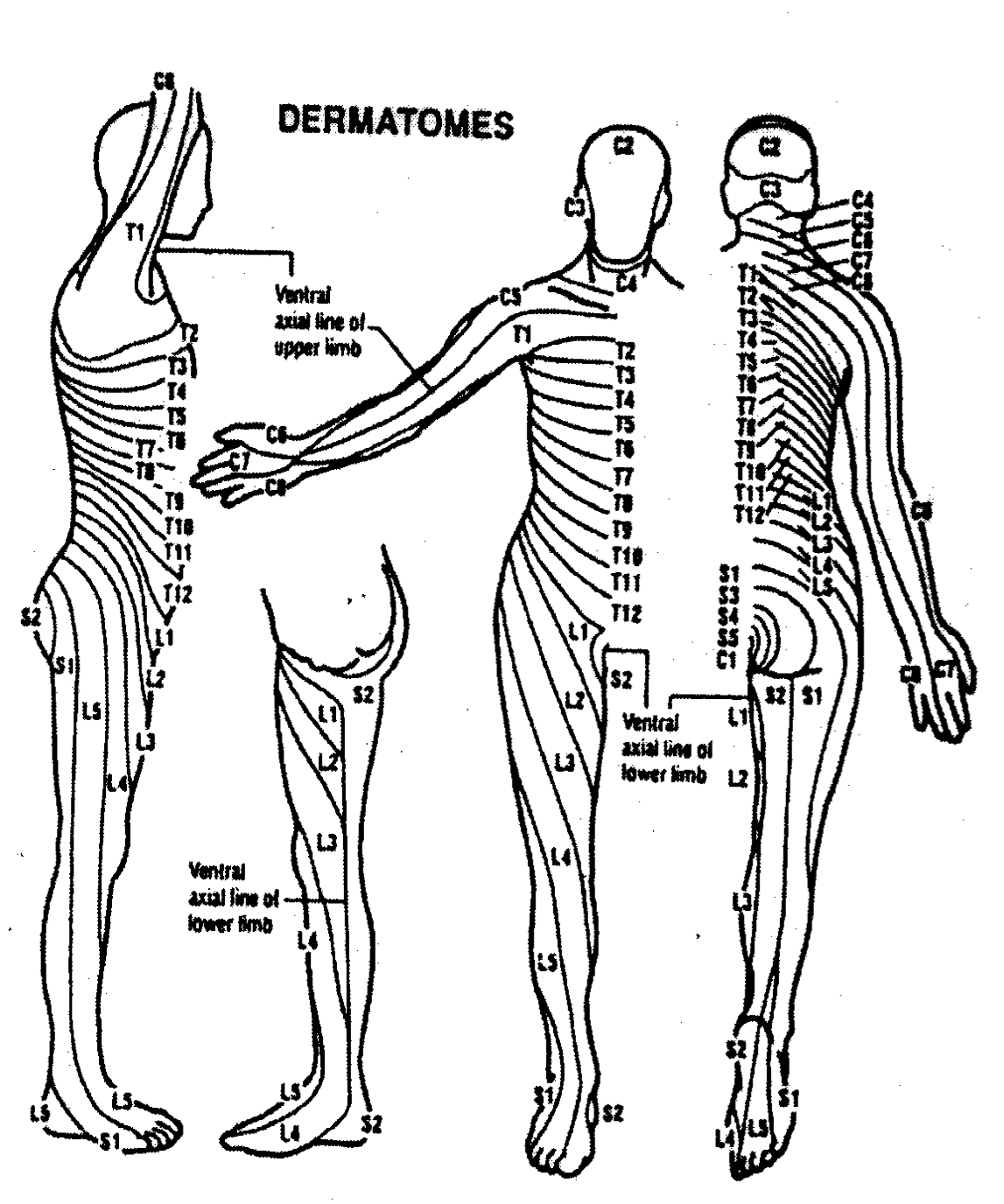Neuro Exam
Mental Status
Cranial Nerves
Motor
0 = no evidence of movement
1 = just a flicker of muscle action. muscle contracts, but produces no movement at the joint.
2 = only horizontal movement (ie, not anti-gravity)
3 = can overcome gravity, but NO ability to-overcome resistance
4 = weak; overcomes some resistance
5 = normal
Coordination
Reflexes
0 = absent 1 = slightly reduced 2 = normal 3 = increased 4 = spreading/clonus
Sensory
A note on the Mini Mental Status Exam
The mini mental status examination or MMSE is a quick, validated examination to evaluate mental status. It is used often with suspected dementia. Score varies substantially with educational level; well educated people with mild dementia can compensate and do well on the MMSE.
A score of less than 20 (out of a possible 30) has an 87% sensitivity for detecting dementia.
Adapted from Standford Medical School’s “Annotated Neuro Exam” stanford.edu
MRI 101
T1-weighted MRI
Bright white = fresh blood, fat, gadolinium
Dark = Fluid/water, dense bone, air
T2-weighted.
Bright white = Fluid/water/CSF. (T2 is more helpful in detecting pathological change. Helpful in detecting cerebral edema that often occurs in pathological states.)
Dark = Fluid/water, dense bone, air
FLAIR. Stands for “fluid attenuated inversion recovery.” The same as T2 but this mode suppresses areas that normally have fluid in them (such as ventricles), which makes it easier to see pathology.
Diffusion Weighted Image (DWI): Can pick up acute ischemia. Enhancement can be seen within 5–10 minutes of the onset of stroke symptoms
Dermatomes

Glasgow Coma Scale
Eye Opening
- Spontaneous: 4
- To speech: 3
- To pain: 2
- No Response: 1
Verbal Response
- Oriented: 5
- Confused speech: 4
- Inappropriate words, jumbled: 3
- Incomprehensible sounds: 2
- No Response: 1
Motor Response
- Obeys: 6
- Localizes movement in response to stimulation: 5
- Withdraws to pain: 4
- Abnormal Flexion to pain (Decorticate): 3
- Extensor Response to pain (Decerebrate): 2
- No Response: 1
Score: 15 is normal. 3 * 8 = coma, requires intubation.